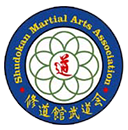Power of the Positive
By Suino, NicklausThis article first appeared in the "SMAA Journal" Volume 16, Issue 1.
Are you too hard on yourself?
Want to succeed in martial arts?
In our martial arts training lives, whether we study aikido, karate, kendo, or some other martial art, we must learn to use the power of the positive. This means that whenever there is a choice about how to act, we should choose the positive action: when teaching, when preparing to demonstrate or compete, and when communicating with others in the dojo.
TEACHING
Studies of neuro-linguistic programming (NLP) have shown that the subconscious mind absorbs information however it is presented. Thus, if a teacher says "don't do it this way," the student may remember the error better than the correct method. However, if a teacher says "do it this way," and demonstrates the correct method, chances are good that the student will remember the proper way to do the technique, whether the technique is found in jujutsu (jujitsu), judo, or iaido.
This doesn't mean that a teacher should never point out student errors. It does suggest, however, that advice should be presented in positive terms whenever possible. This approach will help to maximize the student's exposure to correct examples, and make the whole experience of learning martial arts more enjoyable.
PREPARING FOR DEMONSTRATIONS OR TOURNAMENTS
Adrenaline is one of the biggest obstacles to success in demonstrations, tournaments, or tests. Overcome by nerves, many of us begin to focus more on what not to do than on what we should do. Once the mind starts repeating "don't screw up, don't screw up," the most prominent mental image we end up with is one of screwing up.
A better approach is to mentally rehearse the performance, visualizing ourselves executing each technique correctly, and imagining the satisfied feeling we will have once the routine is completed. Having mentally rehearsed our performance successfully many times before actually stepping onto the mat, we are much more likely to do well.
COMMUNICATING WITH OTHERS
Our dojo in Ann Arbor is a place of learning, not a place of perfection. Because we are learning the martial arts, we have to make ourselves vulnerable. Encouragement, therefore, is the order of the day. It is not necessary to speak falsely in order to encourage others, however. The truth is that every student who puts forth effort is worthy of praise, and an alert instructor or fellow student can always spot opportunities for praise.
"Kengaku" means "visual study" in Japanese. It has two aspects: (1) to spot mistakes made by others in order to avoid them; and (2) to spot the areas where others excel, and to try to emulate them. The second aspect has unlimited potential to make us better!
Grow with the Shudokan Martial Arts Association
You may become a better student, teacher, and performer with support from the SMAA. You’ll gain insight from our prestigious members in multiple countries and can earn reputable certificates of rank. We can answer your questions with credible historic Japanese martial arts knowledge and experience.
Call us today at 734-720-0330 or contact us to join a positive martial arts association.
Download the issue where this article appeared or find many more martial arts articles from the SMAA journal in the library section of our website.

